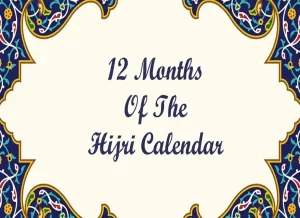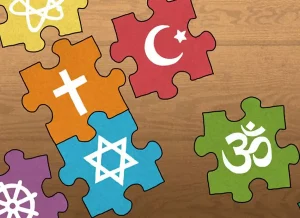Surah An-Nisa was revealed to Prophet Muhammad Peace Be Upon Him in Medina Munawara. In this Article we will learn about Surah An-Nisa, Translations, Benefits, Tafseer, PDF. This Surat Nisa has 176 verses out of which 24 are the Rukus. “Nisa” is an Arabic word that means “Women”. This revelation was named “Nisa” because Surat Nisa was revealed to mainly discuss the basic laws regarding the women in Islam. It contained details related to the inheritance, marriage, education, Islamic training, and rights of women in Islam Surah Nisa ‘s main purpose was to ensure that the laws and rules of the women (Daughters. Sisters, Mothers, Wife) are equal to that of men.
Dear Brothers and Sisters, After the migration of the followers of Islam to Medina, the Muslims formed a community and for that, they needed rules, Laws, Basic Fundamentals Teachings of Islam and regulations. So, the central idea of Surah An-Nisa revolves around guiding the whole Muslims with instructions on how to live in a society, how to consolidate society and how to live a family life.
The status of women in Islam is discussed in Surat Nisa and laws have been designed by The Divine (Allah Almighty) to ensure that the rights of Muslim women are preserved in the best suitable way possible. Surat Nisa benefits Muslims in many ways. It is the perfect guide to every social law, religious, being a Muslim, we have to fulfill.
Dear Brothers and Sisters in Islam, Orphans are also discussed in Surah An-Nisa because, at the time of war, many families lost their guardians (Fathers and Mothers), so in order to provide proper care to the Kids, children who lost their father, mother or guardian, these rules were given so that their inheritance can be preserved. Surah An-Nisa translation has been done in many languages (Arabic, Bangla, ARABIC TAJWEEDI, Chinese, FARSI, HINDI QURAN JUZZ WISEW Indonesia, Portuguese, RUSSIAN, SPANISH, and SWAHILI languages) over the years so that Muslims that speak a different language can understand the laws of Islam given by Allah Almighty (سبحان و تعالىٰ).

Subscribe now Surah An-Nisa. Click Here.
Introduction to An-Nisa’ (the Women)
| Surah An-Nisa # | 4 |
|---|---|
| Surah An-Nisa Meaning | The Women |
| No. of Ayaat/Verses | 176 |
| Revealed in | Medina |
| Revelation order | 92 |
| Sujood (al-Tilaawah) | 0 |
| Surah An-Nisa Rukūʿ | 24 (Ayaah 10, 14, 22, 25, 33, 42, 50, 59, 70, 76, 87, 91, 96, 100, 104, 112, 115, 126, 134, 141, 152, 162, 171, 176) |
| Hizb break(s) | 12 (Ayaah 1, 11, 23, 35, 57, 73, 87, 99, 113, 134, 147, 162) |
| Juz | 4,5,6 |
| Manzil | 1 |
| Surah An-Nisa Page # ^ | 77 (Open) |
| No. of pages | 29.3 |
| LinkJuz Amma 30 Para | QuranMualim |
| The Title Refer to (The Noble Quran) | Whole Surah |
| Haroof Muqatta’at (Isolated Letters the Nobel Quran) | - |
You can find Surah An-Nisa in PDF Format on www.QuranMualim.com. We have a detailed description of Surat Nisa, Translations, Benefits, Tafseer, PDF. Surah Nisa is also said to benefit the one who recites it. Prophet Muhammad (صلى الله عليه وسلم) said;
“Whoever recites Surah An-Nisa is as if this person has spent property in the way of God as much as any Muslim (Brothers and Sisters) gets by virtue of the purport of this Surah An-Nisa , and also reward of a person who has freed a slave, will be given to him”.
Our Arabic publications:
Free Download PDF, Surah Fatihah PDF, Surah Baqarah, Surah Imran, Vegetable Flashcards PDF, 6 Kalimah PDF, Arabic, Grammer, Noorani Qaida, Tajweed book in English, Arabic Short Stories PDF.
Surah An-Nisa Questions Answers
- Surah An-Nisa is in Which Sipara of Quran?
- This Surat Nisa is in 4 – 5 – 6 Sipara of the Quran.
- How many Ayat in Surat Nisa ?
- Surat Nisa 176 ayat .
- Surat Nisa Number?
- The 4 Chapter of the Quran.
- How many Verses of Surah An-Nisa ?
- Surah An-Nisa has 176 verses of Surah.
- In Which Para is Surat Nisa?
- Surah Nisa is in Juz 4 to Juz- 6 Para of the Quran.
- Is What Surat Nisa Makki or Madani?
- Surah An-Nisa is a Madani sura.
- In Which Juz Number of Surat Nisa?
- The position of Surat Nisa ‘s in Juz 4 – 5 – 6

Al Corao Sura-4 An Nisa A vaca Portugues Traducao
Arabic Chapter 4 – Surah Nisa Free PDF
Coran Sourate-2 Surah An Nisa la vache Francais Traduction
El Sagrado Coran Espanol Sentido Sura-2-An Nisa
Para04 – Surah Nisa Free PDF Download
Quran Chinese Translation Surah 2 Aln Nisa PDF
Quran juz-4 An Nisa -Sayaqul Para sipara with English-PDF
Quran Russian Translation Surah-2 An Nisa PDF
Quran Surah 4 -An Nisa Bangla Translation
Quran Surah-2 An Nisa Bahasa Indonesia-
Surah An Nisa Juz 4 in Persian Free PDF
Tafseer Ibn Kaseer English
Tafseer Ibn Kaseer Arabic Free PDF
Tukufu Tkatifu Quran Surat-2 Surah An Nisa Swahili
Our Android Apps
About CEO Al-Asad Online
Hafiz Abdul Hameed
Master In Islamic Studies
(Tajweed, Waqf)
Web Developer/Administrator
Web Content Writer
Blogger, SEO Expert
Graphic Designer
WhatsApp: +92 3017363500













